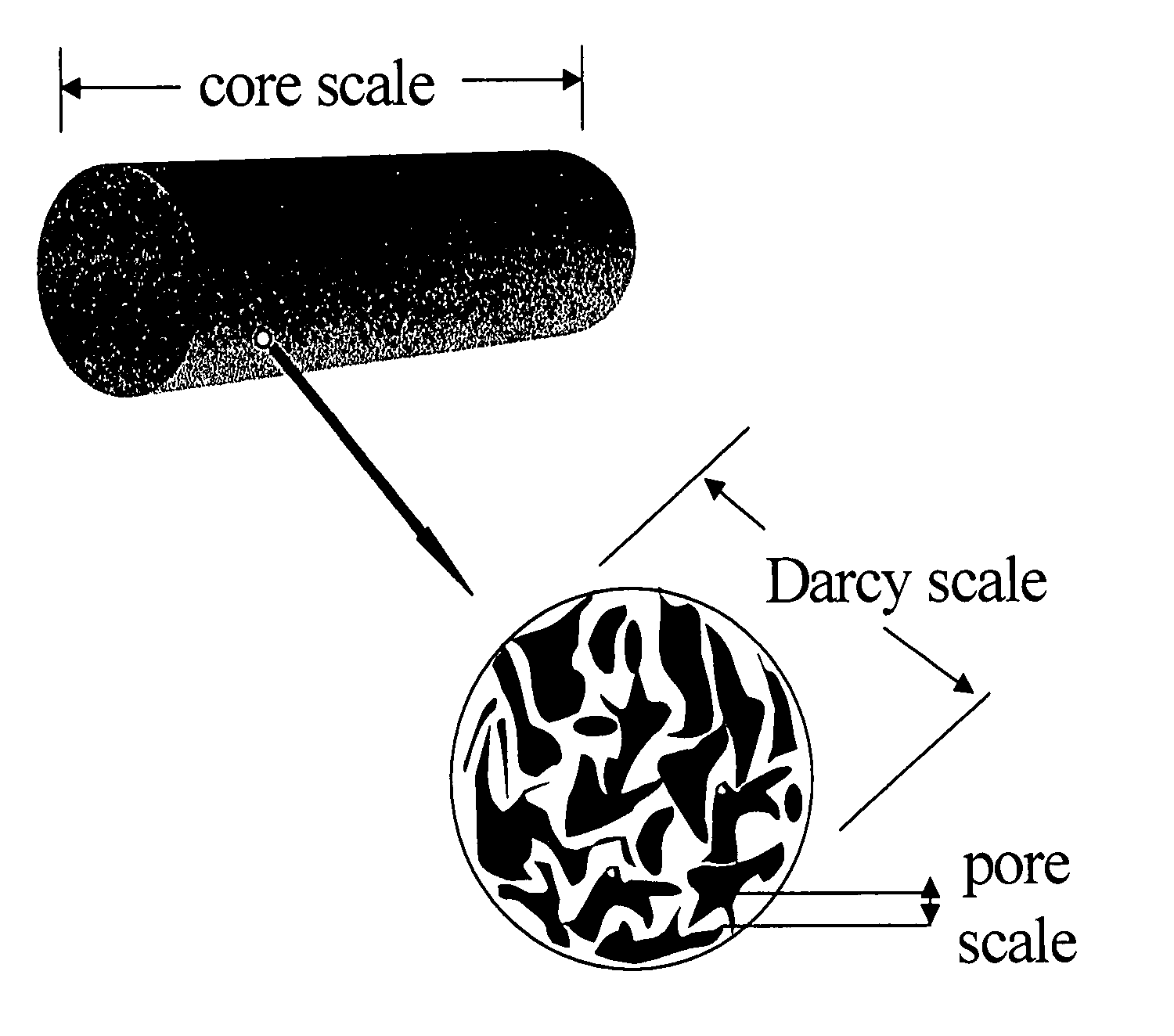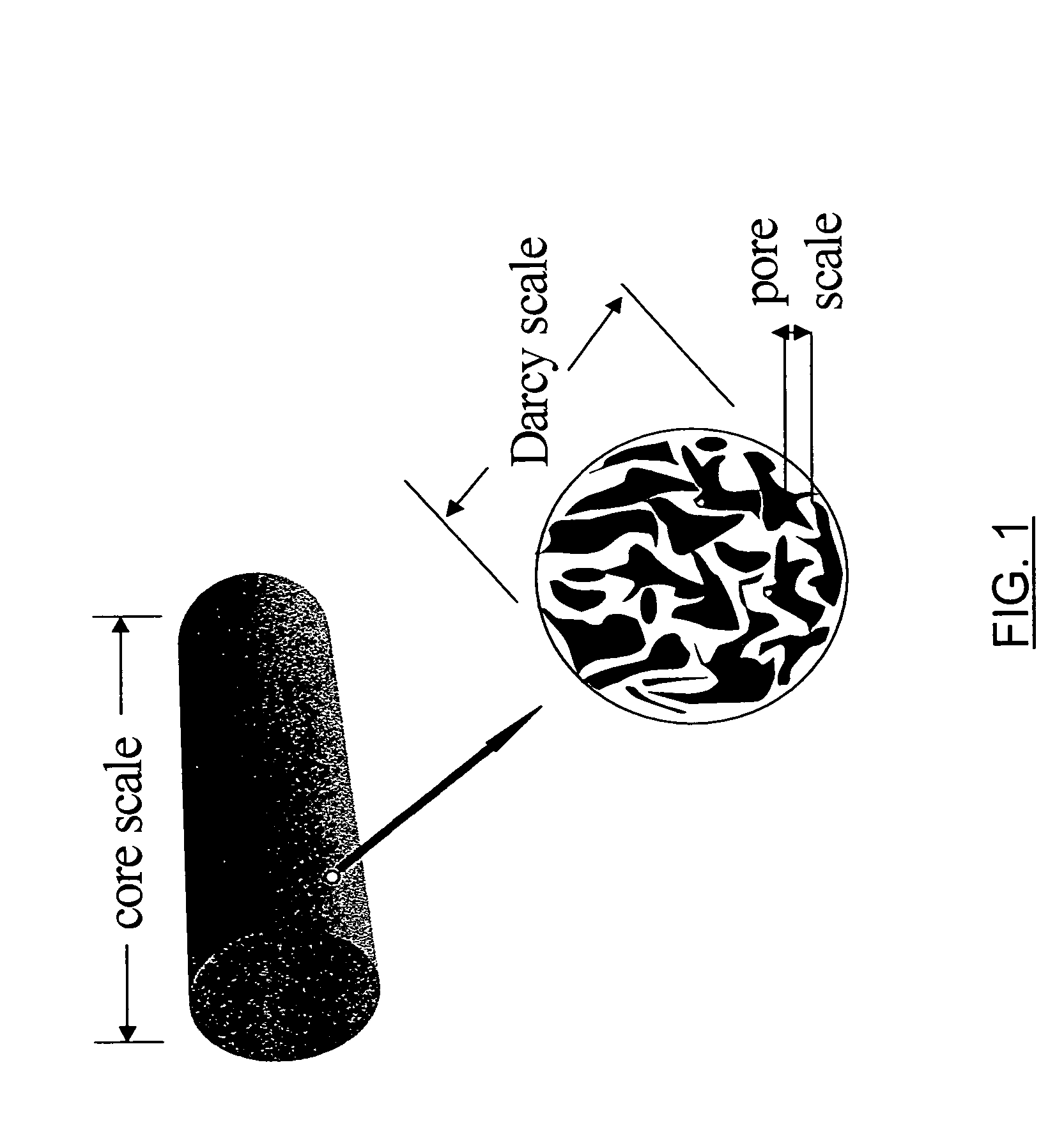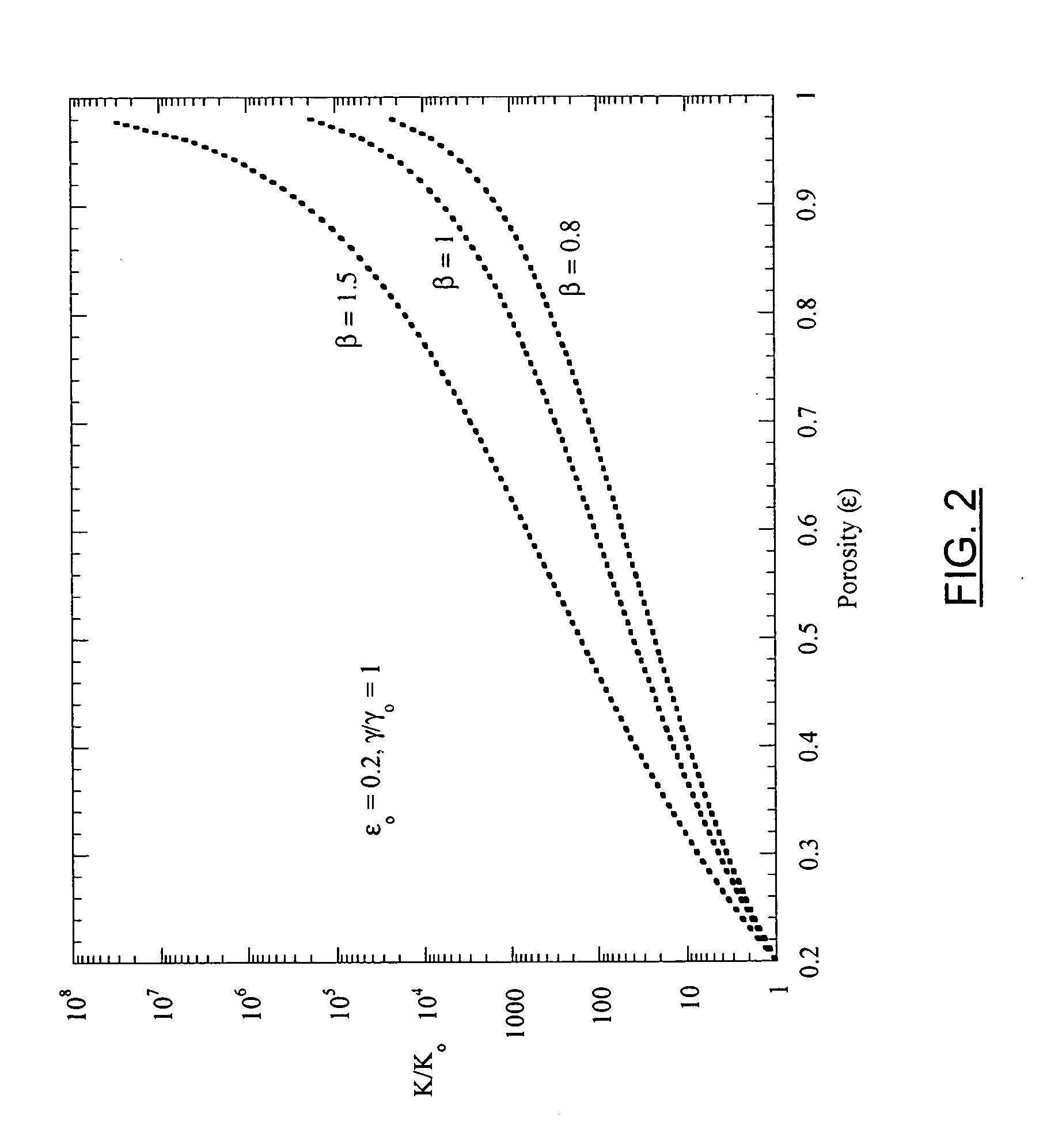Modeling, simulation and comparison of models for wormhole formation during matrix stimulation of carbonates
a carbonate wormhole and matrix stimulation technology, applied in the direction of borehole/well accessories, sealing/packing, instruments, etc., can solve the problems of face dissolution, insufficient accounting, and the core scale simulation of the network model requires enormous computational power, so as to improve the recovery effect of hydrocarbons
Inactive Publication Date: 2006-08-17
SCHLUMBERGER TECH CORP
View PDF10 Cites 40 Cited by
- Summary
- Abstract
- Description
- Claims
- Application Information
AI Technical Summary
Benefits of technology
[0011] Disclosed are methods of modeling stimulation treatments, such as designing matrix tre
Problems solved by technology
At very low injection rates, acid is spent soon after it contacts the medium resulting in face dissolution.
However, existing models describe only a few aspects of the acidizing process and the coupling of the mechanisms of reaction and transport at various scales that play a key role in the estimation of optimum injection rate are not properly accounted for in existing models.
However, a core scale simulation of the network model requires enormous computational power and incorporating the effects of pore merging and heterogeneities into these models is difficult.
The results obtained from network models are also subject to scale up problems.
However, the models
Method used
the structure of the environmentally friendly knitted fabric provided by the present invention; figure 2 Flow chart of the yarn wrapping machine for environmentally friendly knitted fabrics and storage devices; image 3 Is the parameter map of the yarn covering machine
View moreImage
Smart Image Click on the blue labels to locate them in the text.
Smart ImageViewing Examples
Examples
Experimental program
Comparison scheme
Effect test
 Login to View More
Login to View More PUM
 Login to View More
Login to View More Abstract
Disclosed are methods of modeling stimulation treatments, such as designing matrix treatments for subterranean formations penetrated by a wellbore, to enhance hydrocarbon recovery. The modeling methods describe the growth rate and the structure of the dissolution pattern formed due to the injection of a treatment fluid in a porous medium, based on calculating the length scales for dominant transport mechanism(s) and reaction mechanism(s) in the direction of flow lX and the direction transverse to flow lT. Methods of the invention may further include introducing a treatment fluid into the formation, and treating the formation.
Description
[0001] This patent application is a non-provisional application of provisional application Ser. No. 60 / 650,831 filed Feb. 7, 2005. BACKGROUND [0002] The present invention is generally related to hydrocarbon well stimulation, and is more particularly directed to methods for designing matrix treatments. The invention is particularly useful for modeling stimulation treatments, such as designing matrix treatments for subterranean formations penetrated by a wellbore, to enhance hydrocarbon recovery. [0003] Matrix acidizing is a widely used well stimulation technique. The objective in this process is to reduce the resistance to the flow of reservoir fluids due from a naturally tight formation, or even to reduce the resistance to flow of reservoir fluids due to damage. Acid may dissolve the material in the matrix and create flow channels which increase the permeability of the matrix. The efficiency of such a process depends on the type of acid used, injection conditions, structure of the m...
Claims
the structure of the environmentally friendly knitted fabric provided by the present invention; figure 2 Flow chart of the yarn wrapping machine for environmentally friendly knitted fabrics and storage devices; image 3 Is the parameter map of the yarn covering machine
Login to View More Application Information
Patent Timeline
 Login to View More
Login to View More IPC IPC(8): G06G7/48
CPCE21B43/16E21B43/25E21B43/26E21B43/27
Inventor PANGA, MOHAN K.R.ZIAUDDIN, MURTAZABALAKOTAIAH, VEMURI
Owner SCHLUMBERGER TECH CORP
Features
- R&D
- Intellectual Property
- Life Sciences
- Materials
- Tech Scout
Why Patsnap Eureka
- Unparalleled Data Quality
- Higher Quality Content
- 60% Fewer Hallucinations
Social media
Patsnap Eureka Blog
Learn More Browse by: Latest US Patents, China's latest patents, Technical Efficacy Thesaurus, Application Domain, Technology Topic, Popular Technical Reports.
© 2025 PatSnap. All rights reserved.Legal|Privacy policy|Modern Slavery Act Transparency Statement|Sitemap|About US| Contact US: help@patsnap.com



